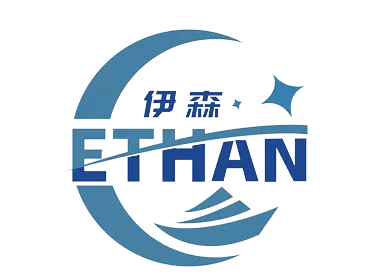Transforming International Logistics Through Digital Innovation
The landscape of global freight forwarding services is undergoing a dramatic transformation, driven by technological advancements and innovative solutions. As international trade continues to expand, traditional logistics methods are being enhanced and sometimes completely reimagined through digital tools and automated processes. This revolution is not just changing how goods move across borders – it's fundamentally reshaping the entire supply chain ecosystem.
Modern global freight forwarding services are increasingly relying on sophisticated technologies to streamline operations, reduce costs, and provide unprecedented visibility to stakeholders. From artificial intelligence to blockchain technology, these innovations are addressing long-standing industry challenges and creating new opportunities for efficiency gains.
Digital Technologies Revolutionizing Freight Operations
Artificial Intelligence and Machine Learning Applications
Artificial intelligence has become a game-changer in global freight forwarding services, offering predictive analytics that can forecast shipping delays, optimize routes, and automate documentation processes. Machine learning algorithms analyze vast amounts of historical data to identify patterns and make increasingly accurate predictions about everything from optimal carrier selection to potential bottlenecks.
These intelligent systems can automatically adjust routing decisions based on real-time factors such as weather conditions, port congestion, and capacity availability. This dynamic approach to logistics management has resulted in significant improvements in delivery times and resource utilization across the industry.
Blockchain Technology and Smart Contracts
The implementation of blockchain technology in global freight forwarding services has introduced unprecedented levels of transparency and security to shipping documentation. Smart contracts automatically execute when predefined conditions are met, reducing payment delays and disputes while ensuring all parties adhere to agreed-upon terms.
Blockchain's distributed ledger technology creates an immutable record of every transaction and movement in the supply chain, effectively eliminating documentation errors and reducing fraud risks. This increased transparency has led to faster customs clearance and improved stakeholder trust.
Enhanced Visibility and Real-Time Tracking Solutions
IoT Sensors and Connected Devices
The Internet of Things (IoT) has revolutionized how global freight forwarding services monitor and track shipments. Smart sensors attached to containers and cargo provide real-time data about location, temperature, humidity, and handling conditions. This level of monitoring ensures cargo integrity and enables immediate response to any issues that arise during transit.
Connected devices also enable proactive maintenance scheduling and optimal asset utilization, reducing equipment downtime and improving overall operational efficiency. The data collected from these sensors contributes to better decision-making and risk management strategies.
Advanced Analytics and Reporting Platforms
Modern analytics platforms are transforming raw data into actionable insights for global freight forwarding services. These sophisticated tools provide comprehensive visibility across the entire supply chain, enabling stakeholders to identify inefficiencies and optimize operations in real-time.
Through customizable dashboards and automated reporting systems, companies can monitor key performance indicators, track shipping milestones, and analyze trends to make data-driven decisions. This enhanced visibility has become crucial for maintaining competitive advantage in the international logistics market.
Process Automation and Workflow Optimization
Robotic Process Automation (RPA)
RPA technology is streamlining repetitive tasks within global freight forwarding services, from document processing to customs declaration preparation. These software robots work 24/7, significantly reducing processing times and eliminating human errors in routine operations.
By automating manual processes, companies can reallocate human resources to more strategic tasks, improving overall productivity and service quality. RPA systems also ensure consistency in operations and compliance with international regulations.
Digital Documentation and Paperless Solutions
The transition to digital documentation has dramatically reduced the administrative burden associated with global freight forwarding services. Electronic Bills of Lading, digital customs forms, and automated compliance checks have accelerated processing times and reduced costs associated with paper-based systems.
Cloud-based document management systems ensure that all stakeholders have immediate access to necessary documentation, facilitating smoother customs clearance and reducing delays at borders. This digital transformation has also contributed to environmental sustainability by significantly reducing paper consumption.
Future Trends and Emerging Technologies
Autonomous Vehicles and Drones
The future of global freight forwarding services will be significantly influenced by autonomous transportation solutions. Self-driving trucks and automated guided vehicles are already being tested in controlled environments, promising to reduce labor costs and increase operational hours.
Drone technology is also emerging as a viable solution for last-mile delivery and warehouse operations, particularly in hard-to-reach areas or during peak periods. These innovations are expected to reshape the logistics landscape in the coming years.
5G Integration and Edge Computing
The rollout of 5G networks combined with edge computing capabilities will enable faster data processing and real-time decision-making in global freight forwarding services. This technology combination will support more sophisticated IoT applications and enable new levels of automation and control.
Enhanced connectivity will also facilitate better communication between different transportation modes and stakeholders, leading to more efficient intermodal operations and reduced transit times.
Frequently Asked Questions
How does technology improve cost efficiency in freight forwarding?
Technology improves cost efficiency in global freight forwarding services through multiple channels, including route optimization, reduced manual labor, better asset utilization, and decreased documentation errors. Automated systems and predictive analytics help identify the most cost-effective shipping options while minimizing delays and reducing operational expenses.
What role does artificial intelligence play in modern freight forwarding?
AI plays a crucial role in modern global freight forwarding services by providing predictive analytics, automating decision-making processes, optimizing routes, and improving customer service through chatbots and automated communication systems. It also helps in risk assessment and capacity planning.
How secure are digital freight forwarding platforms?
Digital freight forwarding platforms employ multiple security measures, including encryption, blockchain technology, and secure authentication protocols. Regular security audits, compliance with international standards, and sophisticated threat detection systems ensure the protection of sensitive data and transactions.


